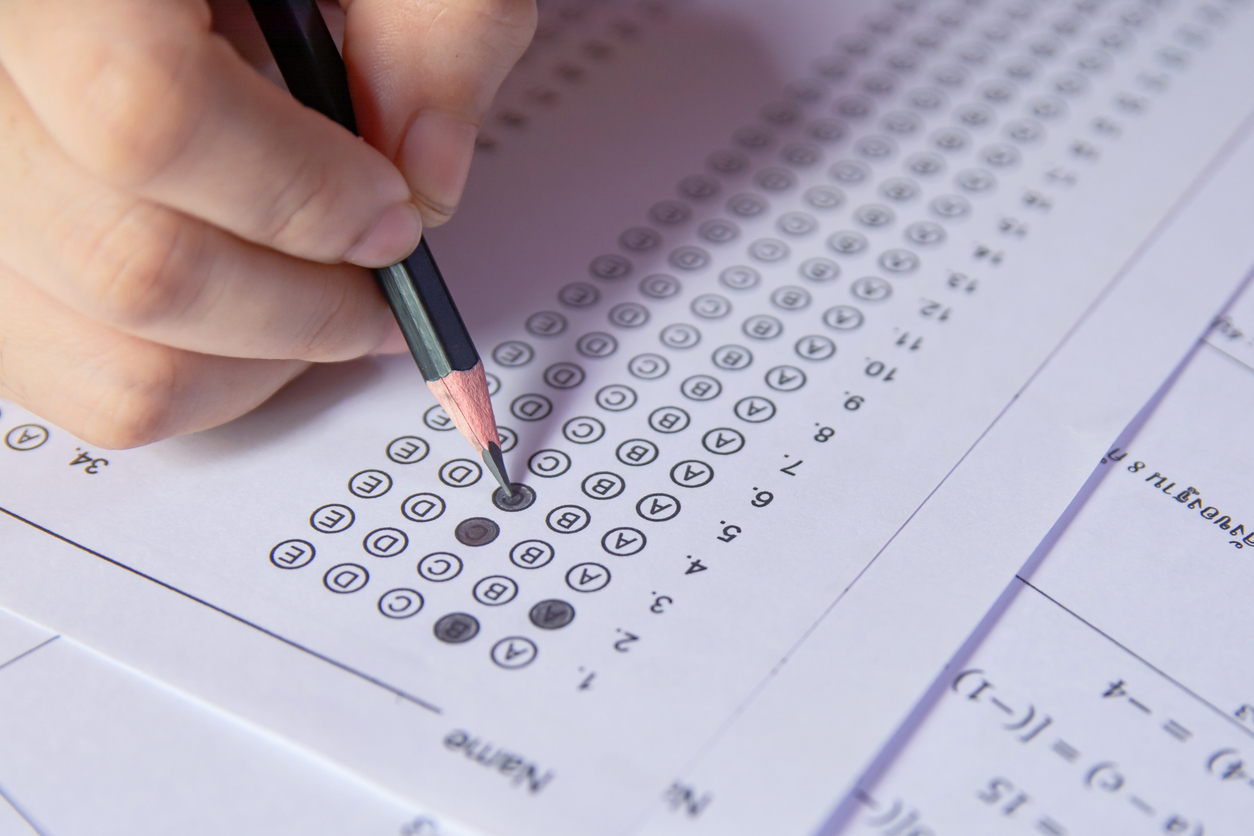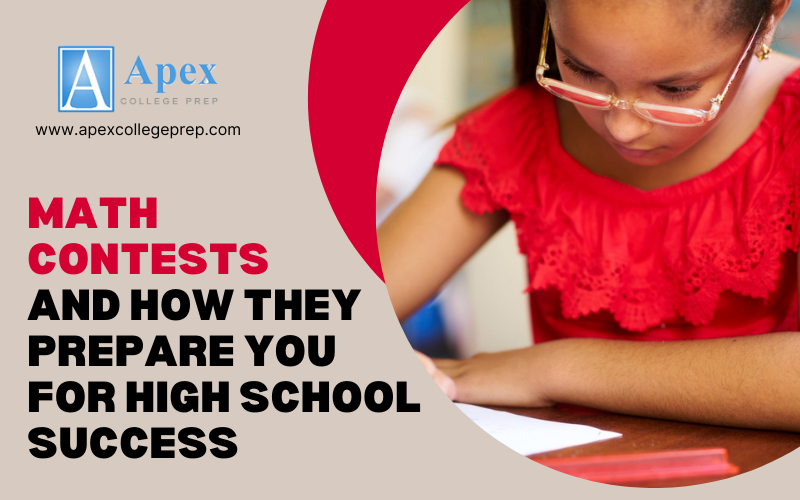Are you good at math and interested in joining math contests soon? They challenge students to solve complex problems beyond their school curriculum. These popular academic contests can be held locally, nationally, and internationally. Competitions like the Math Olympiad and AMC (American Mathematics Competitions) cater to various age groups and skill levels.
This blog post explores how participating in math contests can equip students with valuable skills and experiences. These factors can contribute to their academic and personal success in high school and beyond. Math contests lead to enhanced problem-solving skills, improved critical thinking, and a greater love for math.
Development of problem-solving skills
Math contests are designed to emphasize complex problem-solving skills instead of rote memorization. They challenge participants to apply mathematical concepts in novel ways, encouraging deep understanding and innovative thinking.
Math contest problems often challenge students with unconventional scenarios. These problems demand creative thinking, pattern recognition, conjecture-making, and advanced problem-solving techniques like proof by contradiction. Solving these problems often entails multi-step processes, connections across math areas, and handling complexities without straightforward solutions.
Math contests focus on the participants’ skills, logic, reasoning, and creativity, pushing them to think critically and develop innovative solutions to challenging questions.
Enhancement of critical thinking
Math contests encourage a deeper understanding of mathematical concepts. They require participants to apply their knowledge in novel and challenging ways. These contests often involve problems that go beyond standard classroom exercises. They further promote creative thinking and a deeper exploration of underlying principles.
Balancing between theoretical understanding and practical application is crucial in math contests.
- Theoretical understanding provides the foundation and tools necessary for tackling complex problems.
- Practical application tests one’s ability to employ these theories effectively under contest conditions.
Contestants must often quickly adapt theoretical knowledge to solve specific, practical problems. It enhances their overall mathematical agility and proficiency.
Improvement of time management
Participating in timed contests helps contestants learn to manage their time effectively. They put students in situations where they must think quickly and efficiently. This practice of working within strict time limits can translate into better time management skills in academic and personal tasks. These contests help students learn to estimate how much time tasks require and how to work fast.
Through these contests, students learn the following strategies to prioritize and allocate time:
- Breaking tasks into smaller parts – It helps students estimate time more accurately and manage workload efficiently.
- Setting priorities – Students learn to tackle the most important or challenging tasks first. This ensures crucial aspects are covered when energy levels are highest.
- Time blocking – Students may allocate specific time blocks for studying or solving problems. This helps them create a disciplined schedule and reduce procrastination.
Exposure to advanced concepts
Math contests usually cover a range of topics beyond those typically found in standard school curricula. These topics introduce students to advanced problem-solving techniques and concepts in areas including number theory, combinatorics, and advanced geometry. These topics encourage creative thinking and a deeper understanding of mathematics.
Early exposure to advanced math concepts can significantly benefit students in many ways:
- It strengthens their analytical skills.
- It builds a solid foundation in mathematical reasoning.
- It boosts their confidence in handling complex problems.
Early exposure to advanced math concepts can help students perform better in high-level high school courses (like AP Calculus).

Building resilience and learning from failure
Resilience is crucial to academic success, particularly in challenging settings like math contests. They teach students resilience and promote their problem-solving skills. Students often encounter tough problems and sometimes fail to solve them. But these contests help them learn to navigate frustration and continue trying. This is a valuable skill in any academic pursuit.
One personal anecdote involves a student who consistently participated in math contests but often didn’t perform as well as hoped. The student was understandably disheartened. However, he used each contest as a learning opportunity to identify weaknesses and improve problem-solving strategies.
Over time, the student’s contest scores improved. This reflects his improvement in math skills and his stronger ability to cope with and learn from challenges. This experience underscored the importance of perseverance and resilience in personal and academic growth.
The social aspect: community and competition
Math contests can foster a strong sense of community among participants. They encourage students to collaborate, exchange ideas, and solve problems together. This peer interaction enhances their skills and social bonds.
Competing in math contests can also motivate students. The challenge of competing against peers encourages them to push their boundaries and strive for excellence. This competitive environment can lead to a deeper engagement with the subject. It also fosters a sense of pride and accomplishment in their academic achievements.
Success stories: how math contests help alumni thrive in high school
Examples of former participants:
- Participant A – Excelled in national math contests in middle school and joined the high school math team. They continued to participate in advanced competitions, such as the American Mathematics Competitions (AMC), and consistently scored in the top percentile.
- Participant B –Used their problem-solving skills developed through math contests to excel in high school STEM courses, eventually leading to an early acceptance at a prestigious engineering college.
Testimonials and case studies:
- Case study 1: A former math contest participant passed successfully in high school calculus and physics. They credit the success to the analytical skills and rigorous logical thinking developed during math competitions. They note that these skills were directly applicable to solving complex problems in their high school coursework.
- Testimonial 2: “Competing in math contests not only honed my problem-solving skills but also boosted my confidence in tackling challenging academic subjects. This was immensely helpful in my transition to high school, where I felt prepared to take on advanced placement courses immediately,” says a former participant now thriving in high school.
Conclusion
Participating in math contests prepares students for success in high school. They help hone their problem-solving skills, enhance critical thinking, and foster a deeper understanding of mathematical concepts. These competitions challenge students to apply their knowledge creatively and efficiently. These are invaluable skills across all academic disciplines.
Students are encouraged to participate in math contests. They offer a stimulating and rewarding way to enhance their educational journey. Beyond improving math skills, these contests build confidence, resilience, and a sense of achievement.
We invite readers to explore local and national math contests, such as MATHCOUNTS, the American Mathematics Competitions (AMC), and the International Mathematical Olympiad (IMO). These competitions provide excellent platforms for students to test their abilities and compete with peers.
There are many resources for those looking for math contest opportunities and preparing for them. Art of Problem Solving (AoPS), Brilliant.org, and official websites of specific contests offer practice problems, study guides, and community support to help students excel.
Apex College Prep is dedicated to building students’ confidence and skills to succeed in their academic life. Contact us through email at info@apexcollegeprep.com or complete the contact form here.

